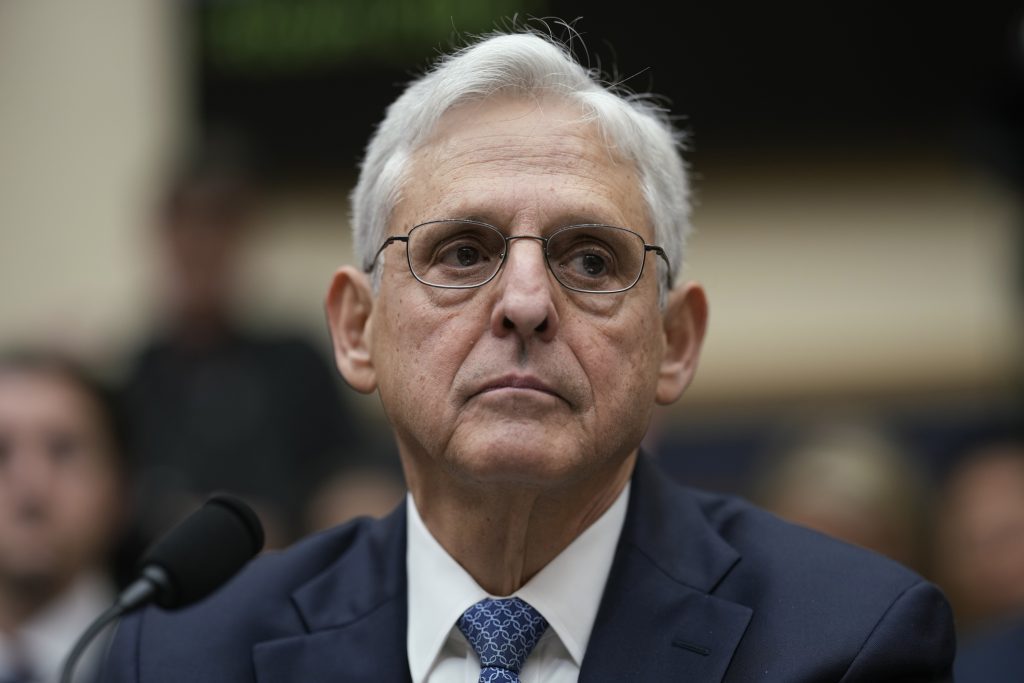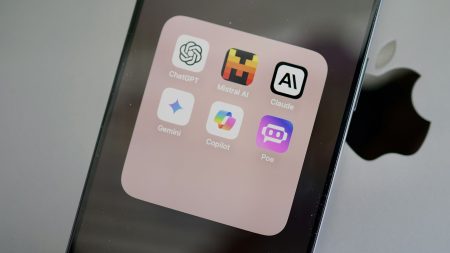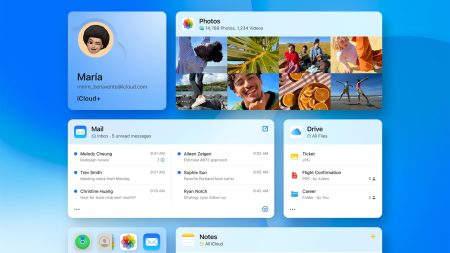The Department of Justice and 16 state and district attorneys general are suing Apple for antitrust violations related to its control over the smartphone market.
The lawsuit alleged Apple limited competition and harmed both consumers and developers through control of its App Store and how its devices and services operate with third parties.
Attorney General Merrick Garland stated that Apple has strengthened its monopoly power by making other products worse, not by improving its own products.
Apple strongly denied the allegations in the lawsuit, arguing that the lawsuit would hinder its ability to deliver the expected technology where hardware, software, and services intersect.
An Apple spokesperson claimed that the suggested changes to its operations would make the iPhone less useful, less private, and less secure for users.
Here are the five ways prosecutors said Apple created a smartphone monopoly.
The accusation of 'degrading and undermining' cross-platform messaging apps is a key part of the complaint against Apple.
One of the main allegations in the complaint focuses on how Apple handles messaging between iPhone users and those without iPhones.
According to the government, Apple undermines cross-platform messaging apps and rival smartphones by limiting the functionality and quality of messages to non-iPhone users.
For instance, the complaint mentions how Apple indicates non-iPhone users with a 'green bubble' in its default messaging app and restricts the features available for messaging with non-iPhone users.
The complaint argues that this signals to users that rival smartphones are of lower quality, even though it's actually Apple that causes the degraded user experience.
The complaint also states that many non-iPhone users feel social stigma, exclusion, and blame for 'breaking' chats where other participants own iPhones.
Additionally, the complaint alleges that Apple intentionally makes third-party messaging apps on the iPhone worse compared to Apple Messages by imposing restrictions on certain features.
The complaint claims that Apple limits other messaging apps from using the iPhone camera to allow users to preview their appearance on video before answering a call and from running in the background when the app is closed.
Restricting the Apple Watch to be only compatible with iPhones is another critical point in the government's case.
The government's complaint alleges that Apple uses the exclusive compatibility of the Apple Watch with the iPhone to prevent customers from choosing other phones.
The complaint also states that the high cost of an Apple Watch, up to $799, acts as a deterrent for iPhone customers to opt for other phones.
The complaint states that Apple knows getting people to buy an Apple Watch instead of a third-party smartwatch helps sell iPhones and strengthens its hold on the smartphone market.
The complaint mentions an email from 2019 with the Vice President of Product Marketing for Apple Watch, which said that the watch might stop iPhone customers from switching to other devices.
Stopping digital wallets from working on different platforms.
The complaint claims that Apple has used its control over the App Store to prevent third-party developers from making digital wallets with tap-to-pay function, which Apple's digital wallet allows for making payments.
Digital wallets can store credit cards, movie tickets, car keys, and personal ID in one app and can be used for making payments in mobile apps and websites.
The Apple Wallet includes Apple's payment system Apple Pay and lets users make payments using their iPhone.
The government alleges that Apple aims for the Apple Wallet to replace many functions of physical wallets and become a single app for shopping, digital keys, transit, ID, travel, entertainment, and more, making it harder for users to switch to a different smartphone and set up a new digital wallet.
The government stated that cross-platform digital wallets would offer an easier and potentially more secure way for users to switch from the iPhone to another smartphone.
Preventing 'super apps'.
The complaint alleges that Apple blocked 'super apps' that would provide many mini programs.
A developer could create one mini program that works on both iPhone and other smartphones, like the popular ones in Asia, according to the complaint.
The super apps would make users rely less on the smartphone's own software and more on the app itself, making them more open to choosing a different smartphone that offers the same interface and apps.
The government alleged that Apple did not respond to the risk that super apps might disrupt its monopoly and instead used its control over app distribution to suppress others' innovation.
The complaint accused Apple of creating, broadening, and enforcing its App Store guidelines to block apps from hosting mini programs.
Curtailing mobile cloud streaming services.
Another key allegation in the complaint is that Apple blocked cloud gaming apps, which would have allowed users to access content without needing expensive Apple hardware.
The complaint stated that Apple was worried about a world where only the price of hardware mattered, and people could buy a cheap Android device and still have a good cloud computing device.
Cloud streaming apps enable users to operate programs through a network of services that host and deliver the content without needing to process or store it on the smartphone itself.
The complaint asserts that cloud streaming is beneficial for both users, as it eliminates the need for hardware, and developers, as it avoids the need to rewrite the same game for multiple operating systems.
The government claimed that Apple had enforced the burdensome requirement for years that any cloud streaming game or update had to be submitted as a standalone app for approval by Apple, causing developers to delay their software updates or only update on non-iOS platforms.
And “until recently,” Apple required users to download cloud streaming software separately for each game and install app updates for each game individually through “repeated trips to Apple’s App Store,” the complaint alleged.
In January, Apple opened its App Store to allow game streaming apps and services, like Xbox Cloud Streaming, The Verge reported.
The government alleged that “Apple’s conduct made cloud streaming apps so unattractive to users that no developer designed one for the iPhone.”









